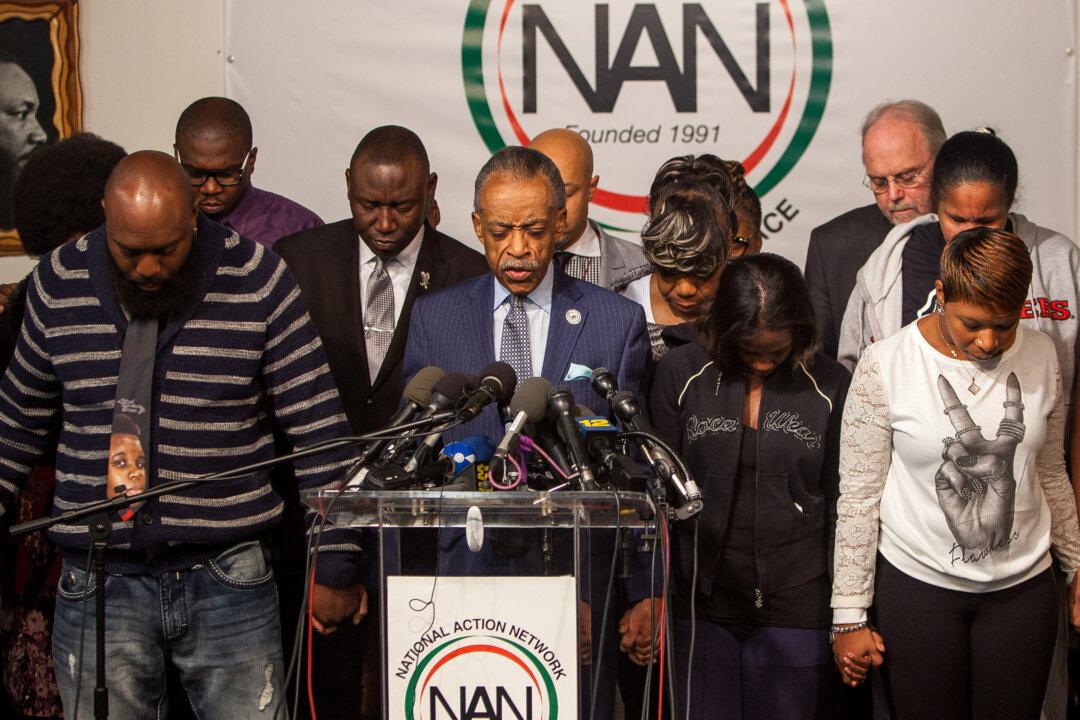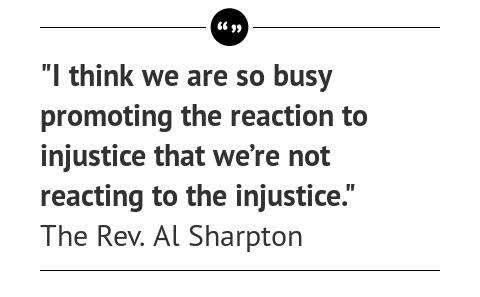NEW YORK—With their heads tilted downwards, the family members of black men who recently died at the hands of police—Michael Brown, Eric Garner, and Akai Gurley—linked arms and closed their eyes in prayer.
“Tomorrow, as they sit across their tables in different cities and look at empty seats, know that that emptiness reflects our failure as a society,” the Rev. Al Sharpton said on Wednesday afternoon, at a press conference held at his civil rights organization’s headquarters in Harlem.
The parents of Michael Brown, the unarmed black teenager who was shot and killed by a police officer in Ferguson, Mo., arrived in New York City two days after a grand jury in St. Louis County announced that it would not indict the officer responsible for Brown’s death. Sharpton’s organization, the National Action Network, is working with Brown’s family and the others.
In July, Garner died in Staten Island after a police officer used a chokehold while arresting him for selling untaxed cigarettes. Garner, who suffers from asthma and hypertension, was caught on a bystander’s recorded video shouting “I can’t breathe” several times, as a group of police officers brought him to the ground.
Last week Gurley died from a gunshot to the chest when a police officer patrolling the stairwell of a Brooklyn public housing project accidentally discharged his weapon, according to police.







